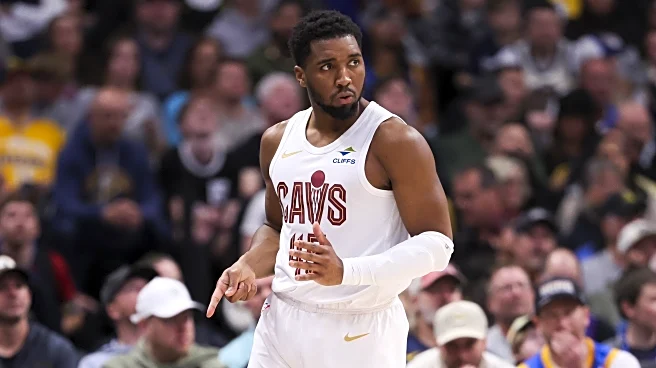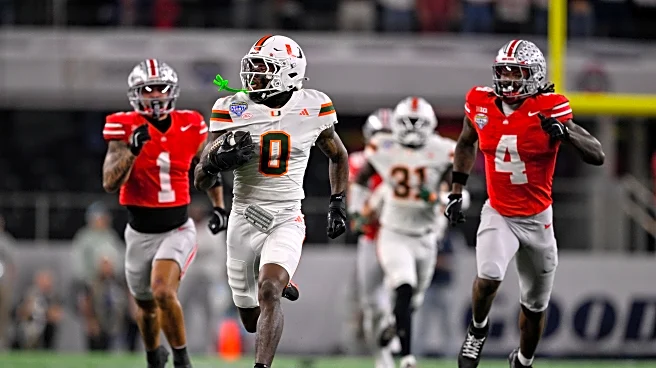What is the story about?
What's Happening?
President Trump has reportedly communicated to Ukraine's leadership that Russian President Vladimir Putin has proposed a conditional ceasefire in the ongoing conflict between Russia and Ukraine. According to sources, Putin's offer involves freezing the current frontlines if Ukraine agrees to withdraw from the eastern regions of Donetsk and Luhansk. This proposal was conveyed by President Trump and U.S. envoy Steve Witkoff to Ukrainian President Volodymyr Zelensky. The discussions highlight the complex diplomatic negotiations aimed at resolving the conflict, which has seen significant military engagements and civilian casualties. The offer from Russia suggests a strategic pause in hostilities, contingent upon Ukraine's territorial concessions in the eastern part of the country.
Why It's Important?
The potential agreement, if accepted, could significantly alter the geopolitical landscape in Eastern Europe. For Ukraine, agreeing to such terms would mean relinquishing control over key regions, which could have profound implications for its sovereignty and territorial integrity. For Russia, securing a withdrawal from these areas would consolidate its influence in the region. The proposal also places President Trump in a pivotal role as a mediator, which could impact U.S. foreign policy and its relations with both Ukraine and Russia. The outcome of these negotiations could set a precedent for future conflict resolutions and influence international diplomatic strategies.
What's Next?
The next steps involve Ukraine's response to the proposal and potential further negotiations. Ukraine's decision will likely be influenced by domestic political pressures and international support, particularly from Western allies. If Ukraine rejects the offer, the conflict may continue with ongoing military engagements. Conversely, acceptance could lead to a temporary de-escalation, though it may also trigger political backlash within Ukraine. The international community, including the European Union and NATO, will be closely monitoring the situation, as their strategic interests are deeply intertwined with the stability of the region.
















